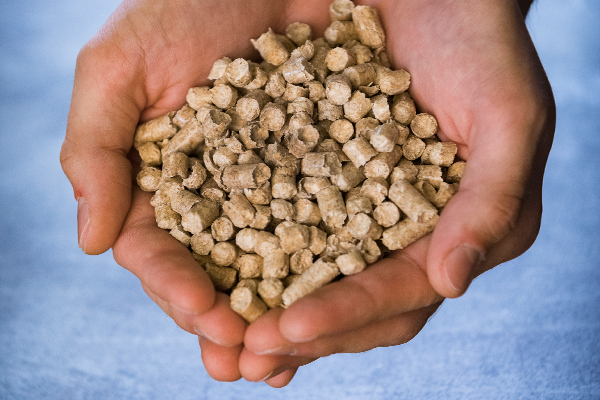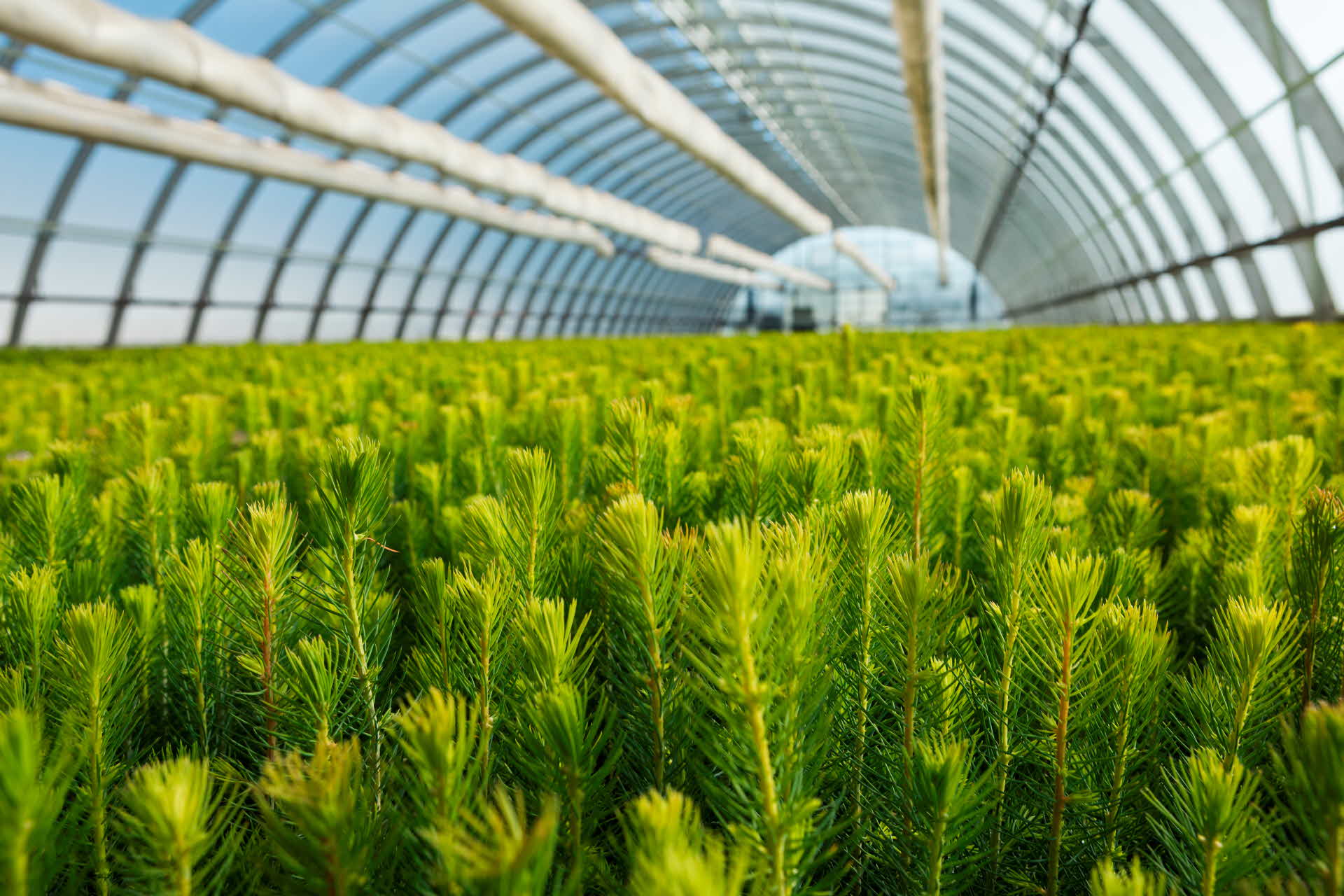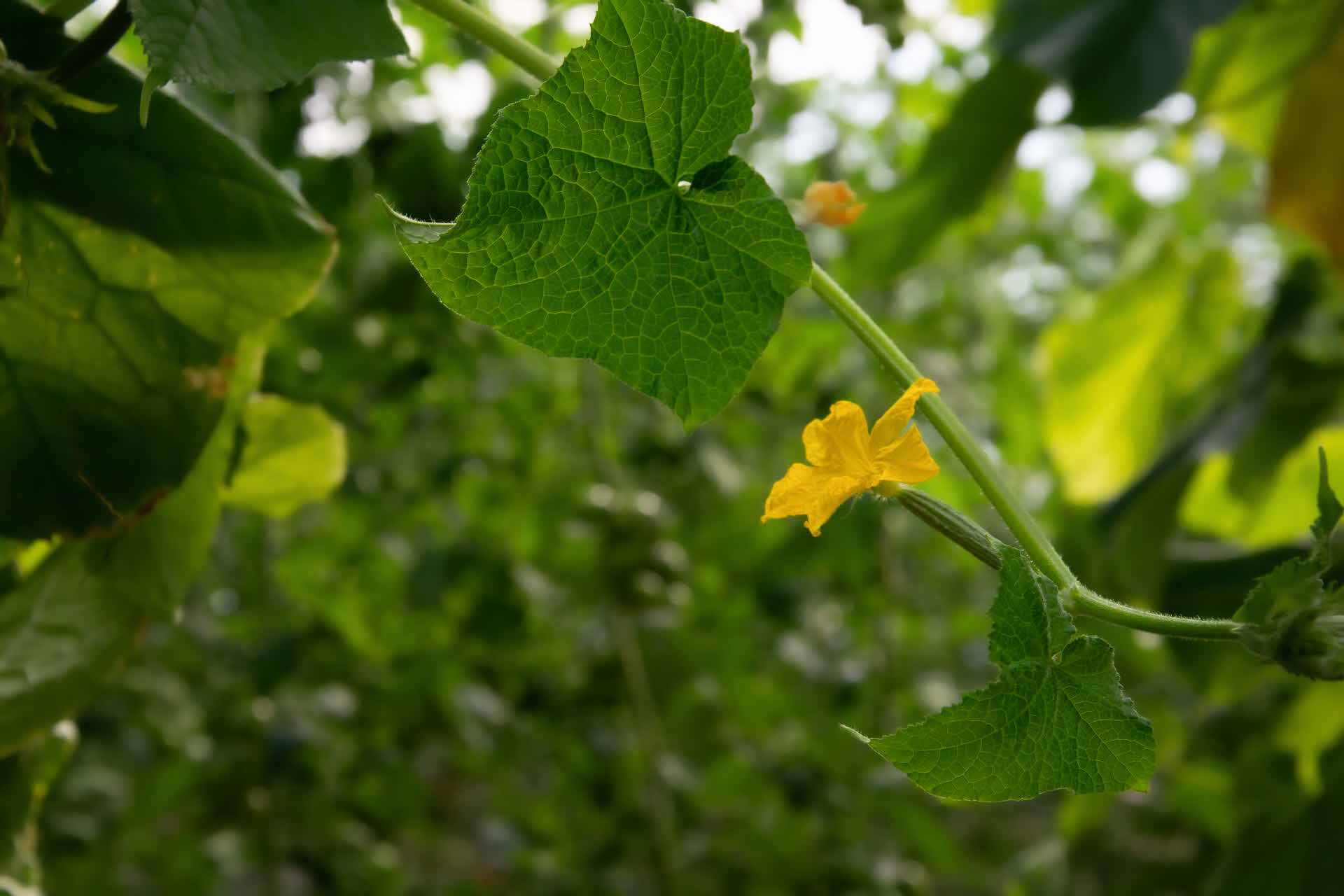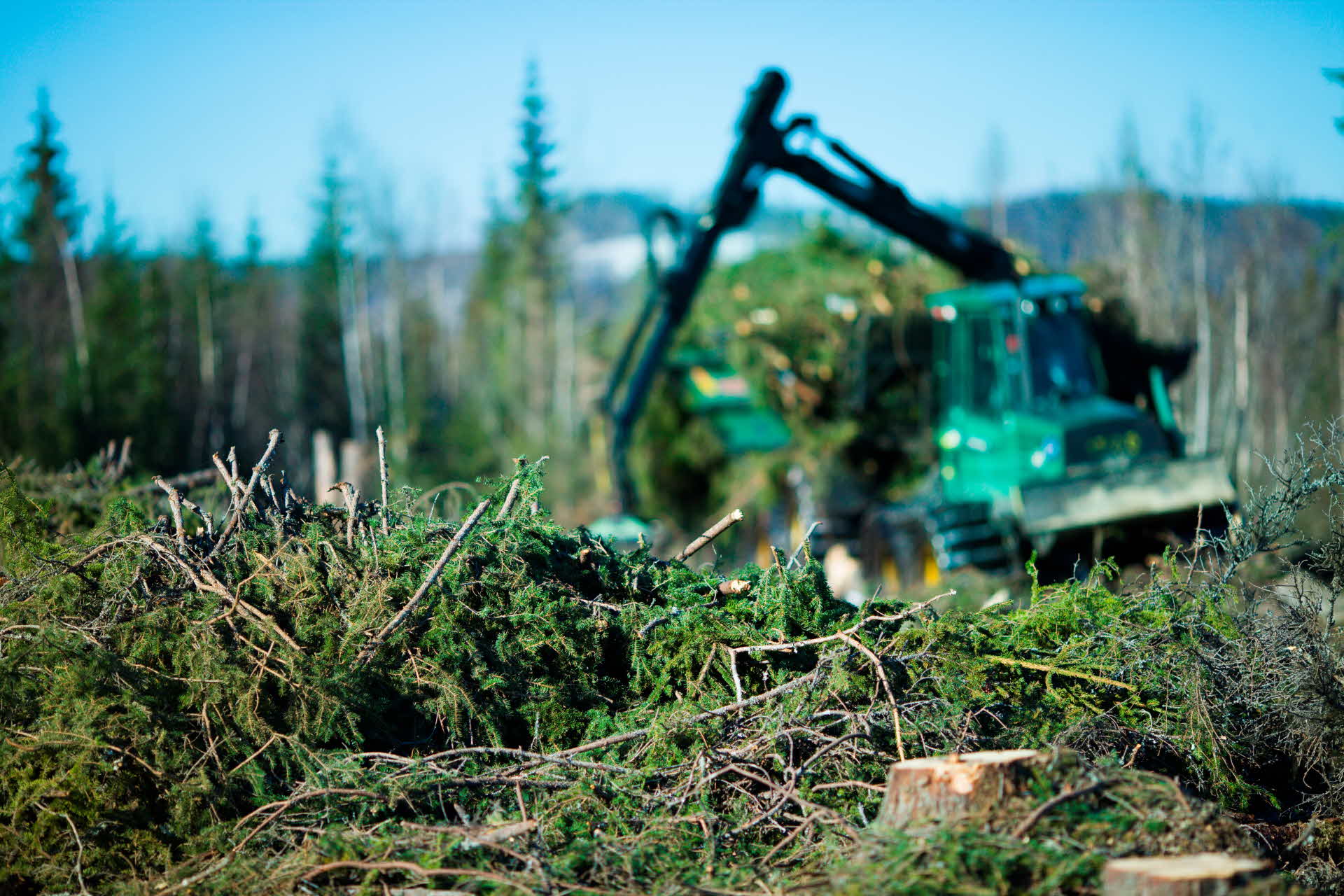
- RENEWABLE ENERGY
- BIOENERGY
Bioenergy - sustainable energy from by-products
SCA's renewable and sustainable products help others transition to fossil-free energy. Our extensive range of renewable fuels can be tailored to meet customer needs. When renewable fuels replace fossil fuels, the impact on the environment and climate is reduced.
Welcome to one of Sweden’s largest suppliers of forest-based solid biofuels!
By-products become sustainable energy
SCA engages in forestry to produce sawlogs. What cannot become timber products is turned into paper, pulp, or bioenergy in a highly efficient system where the entire tree is utilized.
Branches and tops, already collected in the forest, become chips and loose biomass. The bark is used for energy at the sawmill and by our customers.
The sawlog becomes long-lasting timber products, the chips become pulp, and the sawdust, a by-product from the sawmill, goes to pellet production.
Our own production and logistics ensure long-term and reliable deliveries. The raw materials are carefully controlled - we oversee the entire chain from forest to customer.
SCA’s solid biofuels are used for energy production, electricity, and heating - mainly in the Swedish market. The customers are large combined heat and power plants, local heating plants, large and small heating facilities, municipalities, multi-family houses and detached houses.
In Härnösand, Timrå, and Sundsvall, surplus heat from the pellet industry and mills is also utilized in the municipalities’ district heating networks.
Logging residues become bioenergy
After logging, branches and tops are often left behind. By utilizing branches, roadside clippings, and stem wood, we can deliver forest fuels to both larger and smaller boilers. When biofuels from forestry replace fossil fuels, the impact on the climate is reduced.
Energy-rich by-products from sawmills
When the timber is sawn, we utilize the by-products sawdust, wood shavings, bark and dry chips. Bark and dry chips are delivered unprocessed, while sawdust and wood shavings are processed into pellets.
Our delivery options
- Chip and bulk truck Fuels from forestry, by-products from sawmills, and pellets are usually delivered by chip truck and bulk truck.
- Train Train deliveries can be offered from several terminals.
- Vessel Larger deliveries can be loaded onto vessels in Luleå, Härnösand, Sundsvall, Karlskoga, and Sokna.
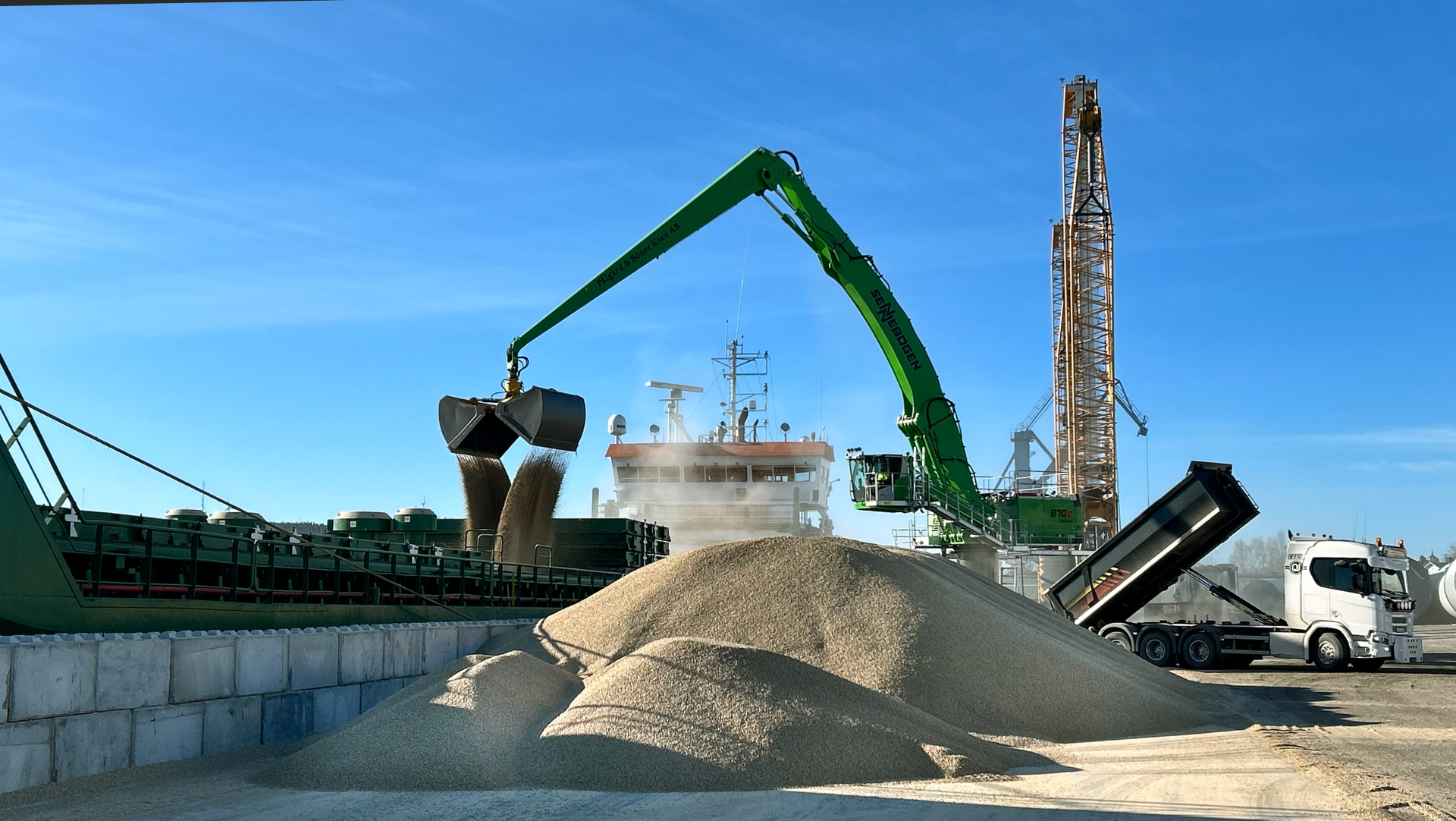
Corporate market
Contact us for the purchase and sale of solid biofuels and pellets to industry and businesses. As one of Europe's largest producers of forest-based bioenergy, we can offer long-term and flexible deliveries.
Welcome to contact us!

What sustainability means to us
The world is facing a green transition – and it cannot wait. We must stop using products that are based on fossil material and fossil energy to move toward a green economy, with climate-smart products that mean fossil carbon can stay in the ground. The forest offers unique opportunities in this area.
Our value chain
The foundation of our mission is to maximize the value of both our forest and of the products we create from it. We ensure that as great a share as possible of harvested trees becomes solid-wood products and also optimize benefits from the other parts. Waste streams and by-products also become valuable products for society’s green transition.
Fossil-free world
The forest binds large amounts of CO₂ when it grows. But it also yields substantial climate benefits when it has been harvested, as forest products replace fossil alternatives so the use of oil and coal can be phased out. The products also store carbon throughout their lifecycle. In 2024, SCA contributed a total climate benefit of 12.3 million tonnes of CO₂e. This corresponds to more than one quarter of Sweden’s fossil emissions.
Briefly about solid biofuels
Residual product: No forest is logged solely for energy production. For fuel, we utilize residues from forestry and the forest industry. Solid biofule is a way to make use of the entire tree.
Biofuels: Solid biofuels are renewable energy produced from biomass, such as plants and plant parts.
Renewable: Biofuel and bioenergy are constantly renewed, unlike fossil fuels such as oil and coal.
Climate-smart whisky made from sustainable energy
A world-class whisky is being produced in an impressive building by the mighty Ångerman river in northern Sweden. Large amounts of energy are required to produce whisky but at this particular distillery, energy is produced from pellets supplied by SCA.
500 000 tons of pellets
SCA sells pellets from its own production in Härnösand, Stugun, Tunadal, and Rundvik, co-owned production in Luleå, as well as Moelven's facilities in Sokna and Karlskoga. Together, the facilities have a production capacity of 500,000 tons of pellets.
